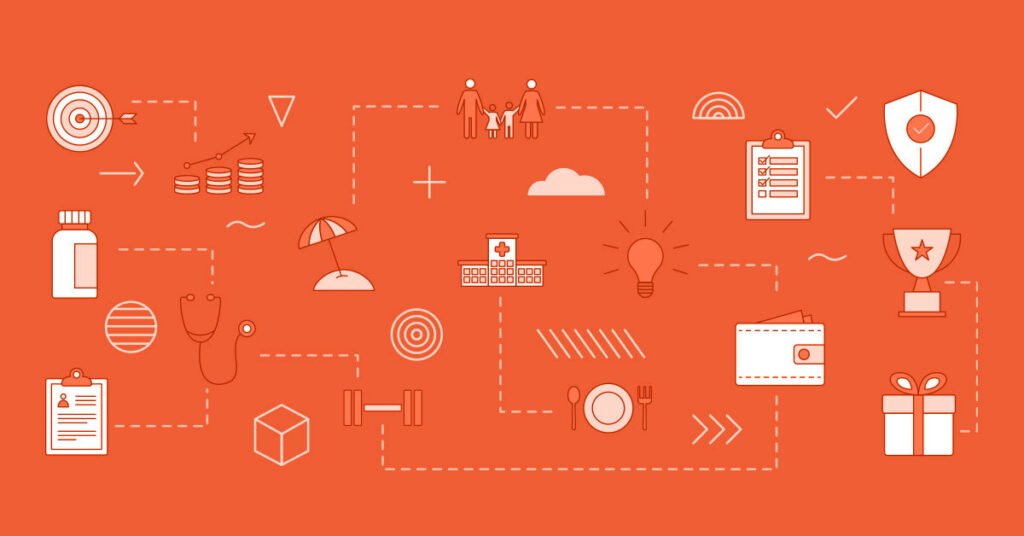In the past few years, as the economic capacity of people dropped, many working people have started focusing on getting term and health insurance. However, the same is not the case with critical illness insurance.
There is a lack of awareness about the product and how useful it can be. People also think that their regular health insurance is enough to take care of all types of illnesses. The cost of critical illness insurance riders is also a major deterrent.
Difference between Life Insurance and Critical Illness Cover
Life Insurance offers financial protection if you die while covered by the policy. Critical Illness Cover is an additional policy that will help minimize the financial impact on you and your family if you become critically ill.
All You Need To Know About Critical Illness Insurance
Critical illness insurance can be life lifesaver for people who are unfortunately diagnosed with any serious and long-term illness that may require expensive treatment. A critical illness insurance policy offers a huge lump sum benefit on the diagnosis of any critical illness covered under the policy.
If you take out life insurance or decrease your life insurance, you can choose to add critical illness coverage at an extra cost. Depending on the cover you choose, that cost could be quite significant. But what exactly is the benefit of critical illness cover, and is it worth it? While no two applicants are the same, this article outlines some of the potential advantages and disadvantages of critical illness insurance.
What is Critical Illness Cover
Critical Illness Cover is designed to protect you and your loved ones from the financial impact of a critical illness. Buying critical illness insurance can be complicated.
Most life insurance companies typically offer critical illness insurance as riders to term insurance or endowment plans. While general insurance or health insurance companies offer critical illness insurance either as a rider along with regular health insurance plans or as stand-alone products.
In both cases, a cash sum is paid if you are diagnosed with, or undergo a medical procedure for, one of the specified critical illnesses under the policy.
Who Needs Critical Illness Cover
A critical illness can affect anyone at any age and can turn lives upside down. For people interested in opting for a Critical Illness Cover, here are some questions to ask yourself first:
- Your income? Critical Illness Cover can protect you financially if you are no longer able to work. Some patients need time to recover from a life-changing illness, while others have to adapt to a new normal. What impact will such an event have on your earnings?
- Your savings? Many people use their savings to support their loss of income after a critical illness. Can you afford to take time off work? Do you have other plans for your savings?
- Your employment benefits? Many people may be dependent on an employment benefit package from their workplace instead of a critical illness policy. However, this will only cover you if you remain an employee of the organization in question.
- What are your financial commitments? If you’re mortgage-free and your children are grown and independent, you may feel confident about relying on your assets or savings if you become critically ill. But if your loved ones are dependent on you financially, Critical Illness Cover can prove to be a lifesaver.
What Critical Illness Cover Includes
People who have Critical Illness Cover will get a cash sum if they are diagnosed with or undergo a medical operation for a specific range of critical illnesses. These include:
- Many types of cancer
- Heart problems (such as heart attacks of specified severity and heart valve replacement or repair)
- Kidney failure
- Stroke (if the symptoms last at least 24 hours)
- Traumatic brain injuries that result in permanent symptoms.
Advantages and Disadvantages of Critical Illness Cover
Peace of Mind
Life can be stressful at the best of times, but Critical Illness Cover gives you and your loved ones one less thing to worry about.
If a beneficiary is unable to work due to a critical illness, the cash sum from a valid claim could help cover your mortgage, rent, or other expenses such as medical bills. It can also help with your recovery and adjusting to a new way of life after a critical illness diagnosis, such as adapting your home to make life easier.
This makes critical illness insurance worth it if you have financial dependents and find that state benefits alone may not be enough, offering peace of mind to many people.
What are the downsides of Critical Illness Cover?
No Cash Value
A Critical Illness Cover policy has no cash value unless a valid claim is made, so even if you survive the policy, you won’t get any money back.
It doesn’t pay out if you’re diagnosed with an illness that isn’t covered.
Most Critical Illness Cover is designed to pay out if the beneficiary is diagnosed with certain critical illnesses and a successful claim is made. If your illness is critical, but is not on the policy provider’s list, there will be no payout.
Not every illness is covered.
While there is a wide range of critical illnesses covered, there are exceptions. For example, some types of cancer are not included in most policies. Deafness should be permanent, and kidney failure must require permanent dialysis. To make a claim, you will need to meet the full definition for the critical illness, which can be found in the policy documents.
Premiums may cost more for some people.
All life insurance products are generally cheaper when you’re younger or in good health, and the same goes for Critical Illness Cover. However, this may not be the best option for all individuals. It’s important to get the right policy for specific needs and to understand how much Critical Illness Cover you may need.
How Much Critical Illness Cover Should I Get?
No one knows when they might become critically ill, so it can be hard to judge how much Critical Illness Cover anyone may need. But a good place to start is thinking about how much you and your family would need if you were unable to work after a critical illness diagnosis. Would you need to cover your rent, household, and all childcare expenses? If your circumstances change in the future, you can always review your cover.

Sadia Zaheer holds a Masters in Business Administration from IBA, Karachi. After working in several financial institutions in Client Management, Corporate Lending, Islamic Banking and Product Management she jumped careers to pursue a career in writing.
She is a Finance, Business and HR Development writer with four years of experience. She reads a lot and takes care of her multiple cats to remain calm.



